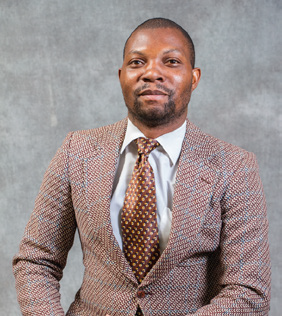Wetlands are ecologically sensitive areas which are a haven to many species – flora and fauna. Many countries are stepping up efforts in order to ensure that degradation of wetlands is prevented. Zimbabwe is in the process of developing National Guidelines on the Sustainable Management of Wetlands. Speaking at a recent consultative workshop, the Environmental Management Agency (EMA) indicated that the guidelines would be necessary in order to address challenges the country is facing with regards to the wetlands.
In recent years Zimbabwe has seen the emergence of housing developments on wetlands and this has also caused dire consequences in the receiving ecosystems. Environmentalists and developers have been at loggerheads as to whether priority should be placed on “preservation” or “conservation”.
Die-hard environmental experts and nature-focused organisations believe that wetlands must not be disturbed at all costs whereas development practitioners propose a balanced and sustainable utilisation approach. The debate is never ending and therefore, it is necessary to come up with guidance as to how wetlands should be managed.
The position on how wetlands are managed varies from country to country and there is no one size fits all. As countries discuss the interactions of humans with wetlands, it is necessary to consider the economic value of wetlands and the services that they offer. Furthermore, it is necessary to check whether resilient infrastructure is available. Local authorities have a key role to play in stopping approval of developments that encroach into wetlands. Stakeholders drawn from government, civil society, private sector, local authorities and research institutions concur that wetlands are key for ecosystem balance The Environmental Management Act 20:27 recognises wetlands as ecologically sensitive areas.
At the international level the Ramsar Convention provides a framework of protecting wetlands across the world. As a result some wetlands are gazetted in the Ramsar Conventions and signatories of the convention are bound to respect the areas classified as wetlands by the convention.
Author
-

Tawanda Collins Muzamwese is the Editor in Chief of the Green Business Gazette Magazine. He is is an international consultant in sustainable business development with massive experience in training, consulting and auditing. He has facilitated capacity development in more than 100 enterprises drawn from over 30 countries. He is the founder of the sustainability think-tank called Toxiconsol Consultancy t/a African Sustainability Consultants. He is the Editor in Chief of the Green Business Gazette Magazine. He is a consultant and business coach with over 13 years experience. Tawanda is a Management Systems Consultant working on promoting development and implementation of ISO Standards (ISO 14001:2015, ISO 9001:2015 and ISO 45001:2018) in both developed and developing countries. With his inspirational and pragmatic writing style he has written cutting edge books including: 1) How to grow a Side-hustle into a viable business - Overcome Salary Dependency 2) The Leading Consultant: How become an authority in your professional field 3) Step-by-Step Guide to implementing Safety, Health, Environment and Quality Management Systems 4) Stepping on Higher Perspectives: Greatness Tips Motivational Series 5) Sustainability Guidebook for Boards and CEOs: Leading from the front Tawanda writes about sustainability, motivation, safety, health, environment and quality management. His books are relevant to both developed and developing countries. With practical approaches and case studies, he provides incisive insights into entrepreneurship. His philosophy is based on the premise that every human being has potential to make a significant difference in their lifetime. He writes books on taking personal responsibility for progression in life. He motivates entrepreneurs to implement income generating projects and determine their own financial destiny. He also motivates companies to take up sustainability initiatives. A start-up coach, public speaker, environmentalist, safety, health and quality management expert, Muzamwese bridges the gap between theory and practice through building capacity and sharing practical case studies in his books.
View all posts



